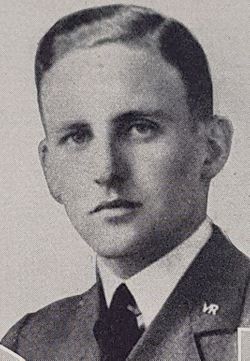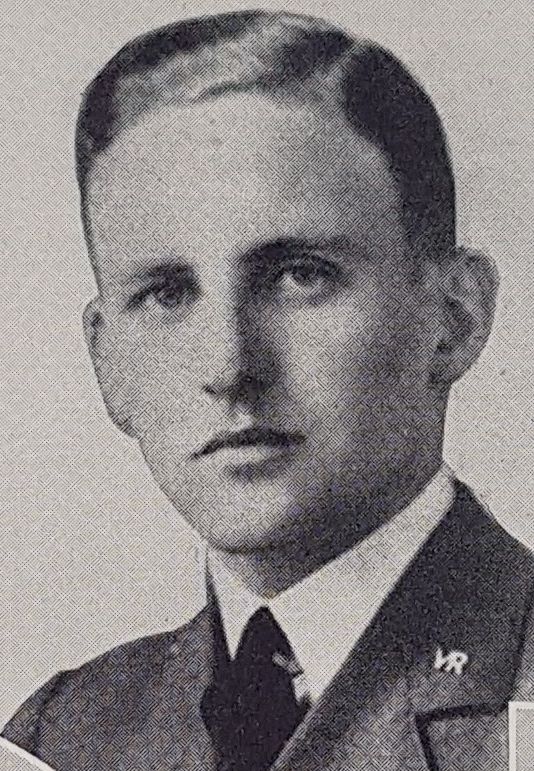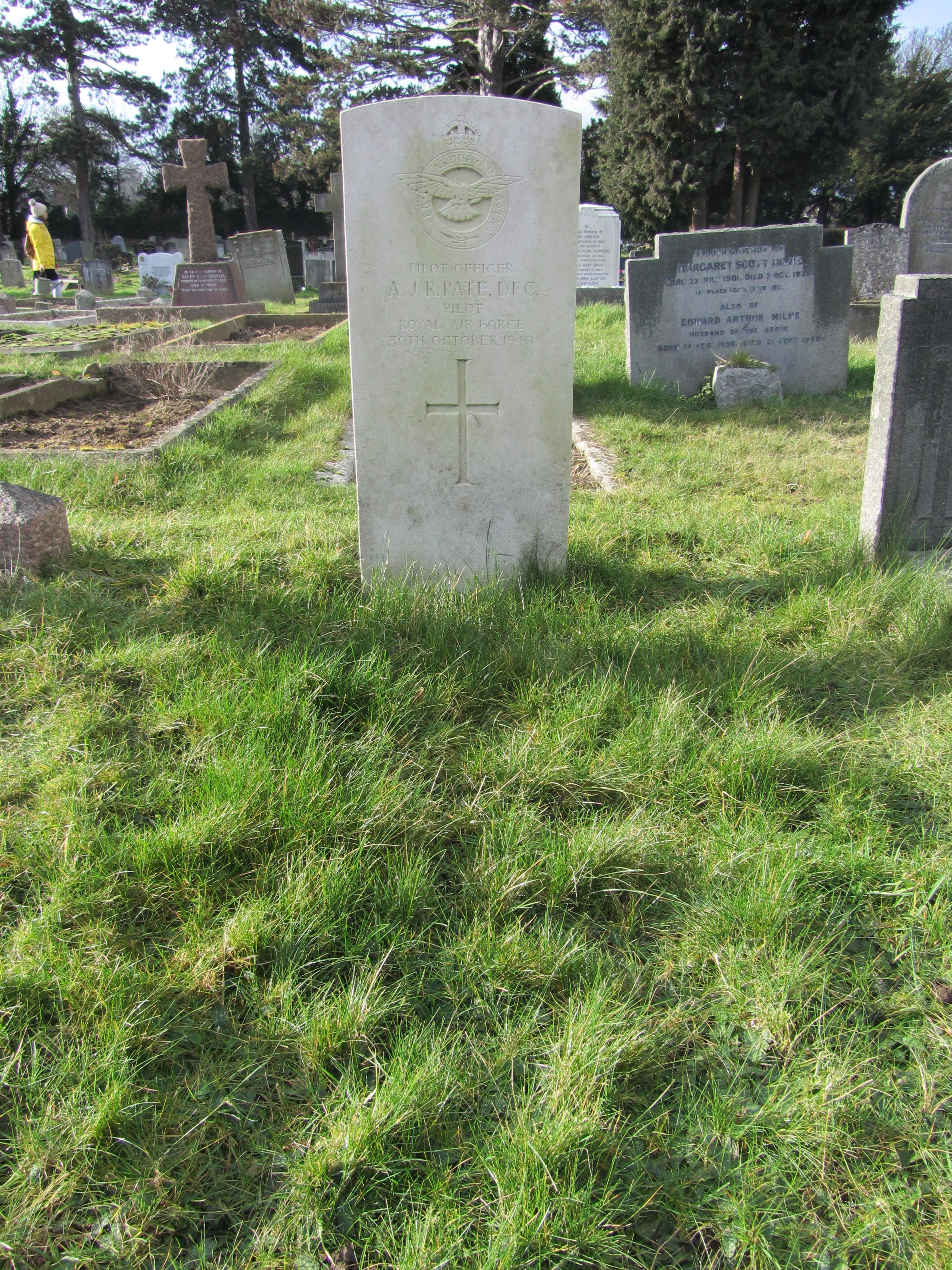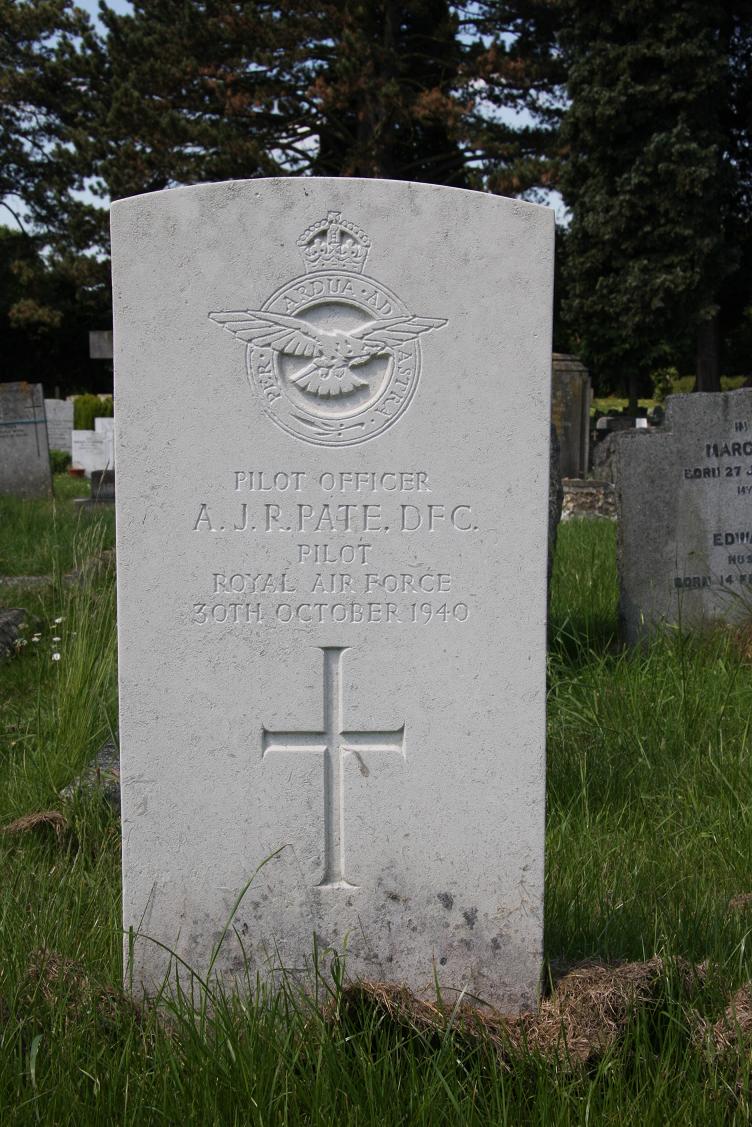Although born in Glasgow, the family seems to have settled in England, as Alexander attended The Dragon School in Oxford. He first attended their Junior School, before going on to the “Big School” in January 1927.
Alexander, together with his brother, left the school in March 1929, and both went on the King’s College on the Isle of Man. He then returned to Oxford in December 1932 to go to Magdalen College School.
After finishing his school he joined Lloyds Bank in 1936, working in Burford. He joined the RAF Volunteer Reserve in 1938.
Before the war he played Rugger for the Nomads, Hockey for Oxford County, and Cricket for Oxford C.C.
At the outbreak of war he was a Sergeant-Pilot, and he was commissioned as a Pilot Officer on the 31st May 1940.
Alexander flew with 115 Squadron, which was equipped with Vickers Wellington bombers.
After having flowing on several operations, on the night of the 29th October 1940, Alexander took off with his crew on a non-operational transit flight to Malta.
At about 1am their aircraft crashed after flying into the London balloon barrage near Iver, Buckinghamshire. All five crewmembers were lost in the crash.
Alexander Pate was buried in the family plot in Wolvercote Cemetery. His Wing-Commander wrote of him:
“He was a splendid officer and a fine pilot, and in the Station Commander's and my own opinion probably the most promising junior officer in the Station. We had particularly noticed how, in the face of opposition and adverse conditions, he courageously and persistently carried on according to orders, when he would have been justified in turning back. His quiet and cheerful manner and charming personality had endeared him to all ranks. He leaves a gap in the Squadron and in the Station that cannot be filled.”
After his death, Alexander was posthumously awarded the Distinguished Flying Cross for gallantry and devotion to duty in execution of operations.
Contributor: Woose (48275987)
Although born in Glasgow, the family seems to have settled in England, as Alexander attended The Dragon School in Oxford. He first attended their Junior School, before going on to the “Big School” in January 1927.
Alexander, together with his brother, left the school in March 1929, and both went on the King’s College on the Isle of Man. He then returned to Oxford in December 1932 to go to Magdalen College School.
After finishing his school he joined Lloyds Bank in 1936, working in Burford. He joined the RAF Volunteer Reserve in 1938.
Before the war he played Rugger for the Nomads, Hockey for Oxford County, and Cricket for Oxford C.C.
At the outbreak of war he was a Sergeant-Pilot, and he was commissioned as a Pilot Officer on the 31st May 1940.
Alexander flew with 115 Squadron, which was equipped with Vickers Wellington bombers.
After having flowing on several operations, on the night of the 29th October 1940, Alexander took off with his crew on a non-operational transit flight to Malta.
At about 1am their aircraft crashed after flying into the London balloon barrage near Iver, Buckinghamshire. All five crewmembers were lost in the crash.
Alexander Pate was buried in the family plot in Wolvercote Cemetery. His Wing-Commander wrote of him:
“He was a splendid officer and a fine pilot, and in the Station Commander's and my own opinion probably the most promising junior officer in the Station. We had particularly noticed how, in the face of opposition and adverse conditions, he courageously and persistently carried on according to orders, when he would have been justified in turning back. His quiet and cheerful manner and charming personality had endeared him to all ranks. He leaves a gap in the Squadron and in the Station that cannot be filled.”
After his death, Alexander was posthumously awarded the Distinguished Flying Cross for gallantry and devotion to duty in execution of operations.
Contributor: Woose (48275987)
Sponsored by Ancestry
Advertisement
Explore more
Sponsored by Ancestry
Advertisement




